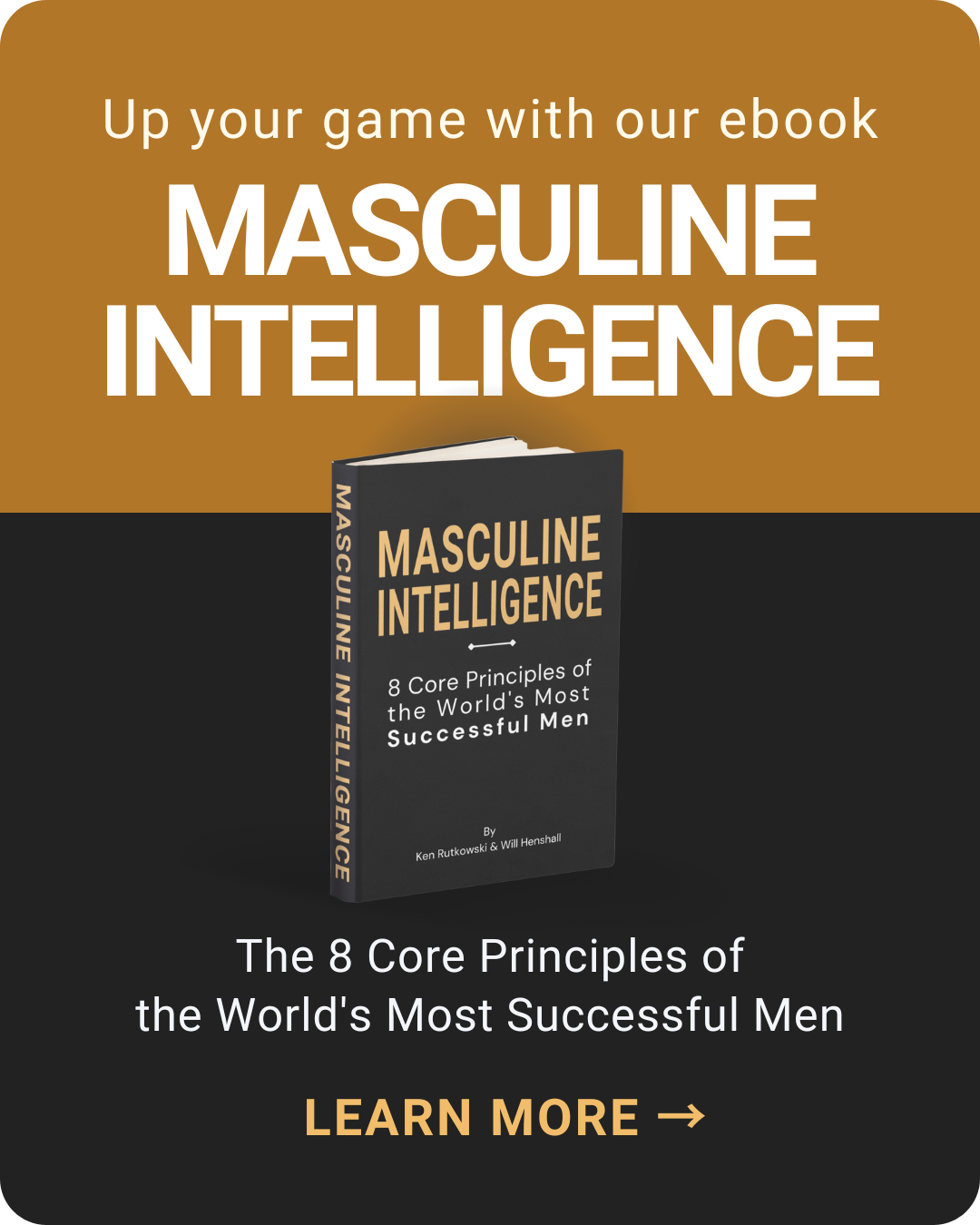
Zach Skow is saving lives, turning two wrongs into a right.
But it’s not easy.
The first wrong is the American incarceration system.
“It’s dumbfounding. We incarcerate 2.5 million Americans every year. Although Americans are less than 4% of the global population, we incarcerate 25% of the world’s men and 33% of the world's women.”
Some like to call it rehabilitation, but “recidivism in the United States of America is 75%. It's a hundred-billion-dollar industry. We're spending a hundred billion dollars to lock these people up, incubate them in a tremendously negative environment that's suffused by violence, that forces you into a relentless fight-or-flight state. And then we eject them into society expecting them to succeed. What happens? They shoot right back to prison. That’s the cycle. And we're decimating communities all over the United States.”

The second wrong is the mass euthanasia of “man’s best friend.”
“We are responsible for dogs. They didn't necessarily create themselves. We bred them, we led to their existence, their population, their dependence. So we ought to be accountable for them, but animal welfare is just a tiny slice on the altruism spectrum. But the private killing, the euthanasia, is ‘out of sight, out of mind.’ We spend close to 80 billion dollars a year nationally on just euthanizing animals – that’s over two million animals a year.”
Watch Zach Skow at METAL
Skow reminds us that it’s not just a number.
“It’s personal. It’s real. It’s visceral. At a typical shelter you keep a dog for a few days or weeks, and then we kill them. A human being has to do that. Usually three human beings have to hold that dog down to prepare it for euthanizing. It's a very dark process.”
Skow has appeared on the Ellen Show, and has personally fostered over 500 dogs himself. He’s also placed thousands of dogs in new families through his efforts, coordinated the transport of hundreds more over thousands of miles to find new homes, and found his life’s purpose pairing dogs destined to be killed with prisoners.
What happens then? Both lives are saved.
“People think we’re a novelty, that it’s adorable. You have bad people in prison who are hanging out with good dogs. And isn't that cute and wonderful? They lose sight of what it actually is changing: recidivism. And recidivism means victims: ongoing victims and new victims. We've had none of our students go back to prison. Zero.”

Skow’s work means saving more lives than you might imagine.
“It means making our community safer. Ninety-seven percent of these individuals working with our dogs get out of prison and we provide them the trajectory to be successful and not create more victims. There’s a huge ripple effect, an important socio-cultural impact of our program.”
SAVIOR, SAVE YOURSELF
Dogs saved Skow’s life as well. In 2008, he was given less than 90 days to live. “I needed a liver transplant immediately, and without six months of sobriety you can’t qualify for one. I spent six weeks at Bakersfield Memorial Hospital, essentially just dying. I got through alcohol withdrawal there, but became addicted to morphine in the hospital.”
During those months, Skow was in pain, becoming “extremely suicidal, but fostering dogs changed everything for me. They showed me my worth through their undying reciprocal love and affection. I was going to take my own life, but I started creating their biographies, taking their pictures, training them.”

Skow says he learned firsthand how “a person in recovery needs rules, boundaries, discipline, exercise, affection, and love. Just the same, a dog in recovery needs rules, boundaries, discipline, exercise, affection and love. So, as I was giving these dogs what they needed, I was able to give myself what I needed, and, along with sobriety, my liver, pancreas, kidneys, gall bladder – all of these things that were failing started to improve.”
Skow worked himself down from stage 4 liver fibrosis to stage 3.
“I never intended to be involved in animal rescue, never intended to have this as a career, never intended to develop the programs that we did. This was all born out of a real existential crisis, and [from] my dogs doing for me what I couldn't do for myself.”
TRAINER TRAIN THYSELF
According to Skow, most people don’t know how to raise a dog.
“We get a dog and anthropomorphize them, treating them like small children. Then we get frustrated when they don't understand English and shout at them. But it’s a detailed process getting to know your dog: how you connect, how you communicate, and then also implementing structure and skills.”
Properly training a dog, Skow, says, is one of the most effective forms of self-learning and therapy available.

“If people care to grow and learn about themselves, really getting in touch with their own true selves, their hearts and habits, especially for us men, there's almost no better way to do it than working with an animal. It forces a rigorously honest inventory. When you try to train a dog, your frustration will peak, your lack of patience. All of your own red flags will pop up. So it is a very effective way to look at yourself in the mirror and implement change in your own life.”
“We have a 14-week-long program where prisoners serve as foster parents, which is very involved. There's a tremendous amount of homework involving understanding dog psychology, understanding sobriety, understanding the connection of the human-animal bond. On the deepest level, it involves this grand understanding that whatever is passing through your transom, whatever is occupying your mind, whatever frequency you're putting off will pass into the dog.”

Skow has programs at five different facilities, including juvenile, federal, state, and female institutions.
“Make no mistake about it: we are trying to turn our students into assets instead of liabilities. I have a huge amount of respect and confidence in the incarcerated community, in the human beings that I've met. They are some of the most brilliant, talented, capable people I know.”
And these aren’t country club prisoners.
“They are all black and brown gang members doing long-term prison sentences, usually involving loss-of-life offenses. We’re talking high-security yards. We bring the dogs in for the 14 weeks, and our guys can enroll in the program over and over again. When our students go to the parole board, they get a real bump for having experienced such positive change.”
METAL member Bruce Bryan, who was incarcerated unjustly for nearly 30 years, comments that the American prison system is “the only business that thrives off of failure. If you have a car dealership and 75 of your cars are returned back to you within the first 36 months, guess what? Your dealership fails, but for prisons, they thrive.”

But for Skow’s students, the change continues after they are released.
When they get out, “our structure and the guidance we give our students via this program sets them up for success. Half of our students who have gotten out ended up as pet industry professionals, behaviorists, kennel technicians, [or] working in rescue and animal sheltering. Four of our formerly incarcerated trainers, all of whom did more than 20 years in prison, now teach our program. Some started their own dog-related companies and now hire some of our other students when they get out of prison. So we have this wonderful mini-economy that is willing to accept formerly incarcerated individuals with loss-of-life records.”
“The task before us is huge. Through our Miracle Mutts program, we bring dogs into schools and hospitals to remind people of the medicine of the human-animal bond and of the capability of dogs. We’ve worked hard in Kern County – where I’m based – to get our shelters down to no-kill levels. We educate people around spaying. You’ve got to take a holistic approach – both for dogs and prisoners alike.”
“It’s so exciting really. We are facilitating real socio-cultural change, uplifting the disenfranchised, providing hope and opportunity to forgotten communities, saving people, and saving dogs every way we can. And me? It's the only way I can maintain my sobriety and my positive outlook on life – to be committed to service.”
Written by Adam Gilad
Trending Now
Ethereum ETFs are set to Launch Today as Crypto Enters the Financial Mainstream: Crypto enthusiasts rejoiced this weekend as the Chicago Board Options Exchange, the largest options exchange in the U.S., announced that five spot Ethereum exchange-traded funds (ETFs) are set to begin trading today. These ETFs will follow the price of Ethereum, the second-largest cryptocurrency, allowing investors wary of direct crypto ownership to gain exposure to its price movements. (Robinhood)
AI Can Detect Prostate Cancer Better than doctors, study says: An AI healthcare firm claims its software can identify the extent of prostate cancer more precisely than doctors. Avenda Health published a study last month involving ten doctors who evaluated 50 prostate cancer cases each. The company's Unfold AI software demonstrated 84.7% accuracy in detecting cancer, outperforming the physicians, whose manual detection rates ranged from 67.2% to 75.9%. (Qz)
Neuroscientist Discusses Whether Lab-Grown Brains Could Develop Consciousness: As advancements in using human tissue for growing brains in labs progress, a neuroscientist addresses the critical question: is it possible for lab-grown brains to attain true consciousness? Kenneth Kosik, a neuroscientist from the University of California at Santa Barbara, clarified in a Live Science interview that, given the current state of science, brains replicated in laboratories are not expected to become conscious in the near future. (Futurism)



